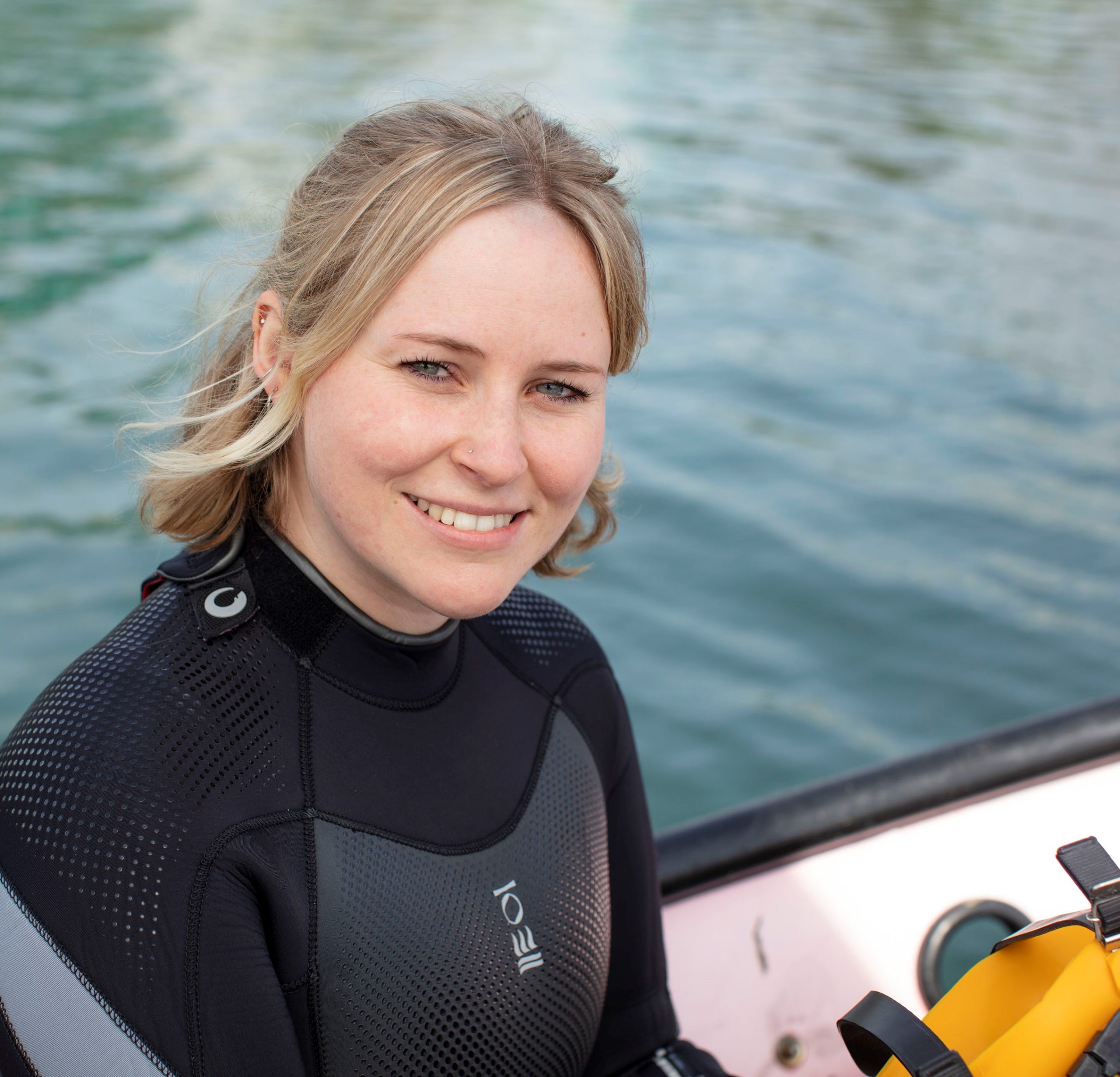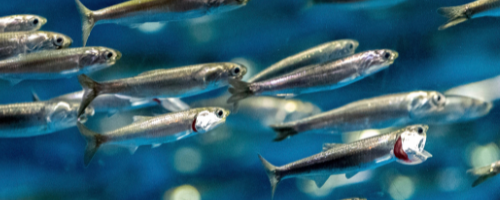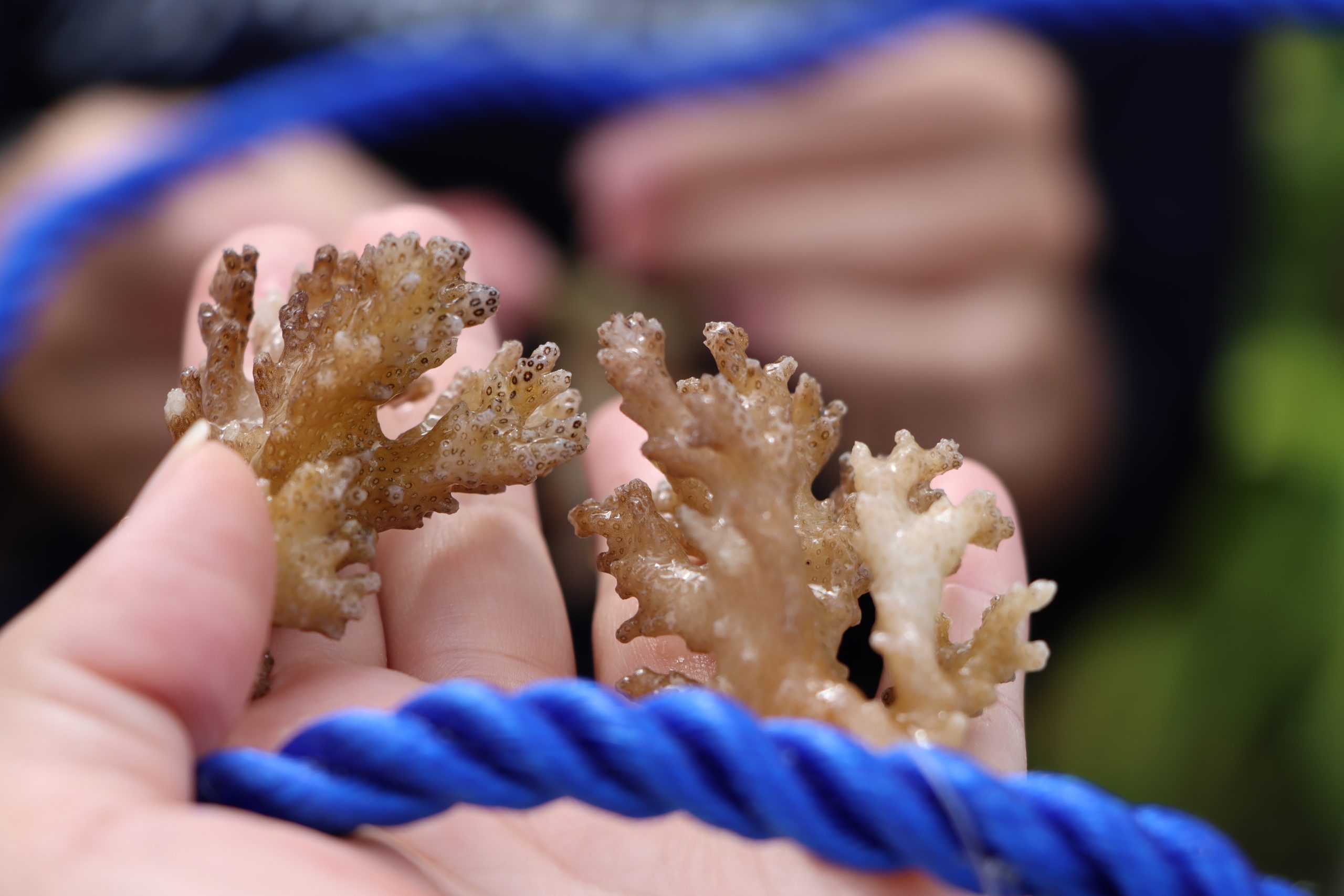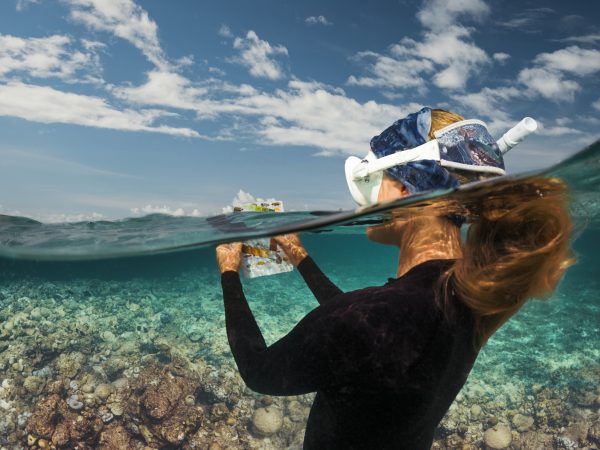
This week on ‘An Interview with WiseOceans’ we spoke with our own Caitlin Rentell
Name: Caitlin Rentell
Role: Marine Biologist and Educator
Company: WiseOceans
Top Tip: If you find something difficult that is your sign to keep doing it over and over again, don’t give up and soon you will be able to do it without thinking!
Quick Fire Questions
1. What inspired you to pursue a career in marine conservation?
I always had a passion for science even from a young age. Naturally I found myself leaning towards biology with a curiosity for why organisms look or act in certain ways. My introduction to marine conservation started at a university open day where I was introduced to a marine biologist researching the impact of climate change in the Artic. As soon as our conversation finished, I knew I was hooked! I often think where I would be right now had I not met that one person who opened my eyes to the field.
2. What steps did you take or are you currently taking to achieve your career goals?
I completed my degree in Marine Biology at the University of Plymouth. One great piece of advice I followed throughout my degree was to look into as many different areas of the field as possible. I made sure to get a range of experience by signing up for modules that were not necessarily my topics of interest, but I learnt to love them as I found out more. Alongside my studies I tried to volunteer as much as possible by contacting local conservation organisations and gaining experience whilst meeting other marine scientists.
After completing my degree, I wanted to diversify my skill sets. I volunteered to help conservation organisations with their marketing and social media. It was actually the marketing experience that helped me land my first role after graduation as many of the other applicants had a similar amount of experience and education! I definitely recommend getting experience in other fields that interest you even if they are not always a direct link to science.
3. How did you obtain your current position?
My journey into tropical marine ecosystems started in the Maldives. It was here I gained experience working within an NGO that focused on sea turtle conservation, coral restoration and community outreach. I still remember my first ever snorkel after arriving and I was blown away by the colours and diversity of the marine life.
After completing six months in the Maldives, I decided to head to Thailand to complete my Divemaster training. After completing my certification, I found myself heading back to the Maldives to work as a marine biologist at one of the resorts. Upon completion of my contract, I applied for the role with WiseOceans, and I am now thrilled to be a part of the WiseOceans team based here in the Seychelles.
4. Which part of your job do you enjoy the most?
Easy answer! It has to be getting into the ocean every day. I always expect the unexpected and often come across marine life I have never seen before.
I also love taking guests into the water for the first time. To see someone else enjoy all the beautiful fish and corals is magical. It sparks so many conversations about what is happening to our oceans and how we can all make changes to protect it.
5. Are there aspects of your position which make you feel that you are really ‘making a difference’?
The power of awareness can be hard to measure but I believe it is one of the most important tools in conservation. The more people who are aware of our changing oceans, the more chance we have of protecting it. One person alone cannot protect the ocean – it has to be a movement of people from all over the world to make the necessary changes to prevent further biodiversity and habitat loss.
6. What do you know now that you wish you knew when you were starting out?
The power of networking! In so many cases it is people who you have met and connected with that share new opportunities with you. Make sure when you meet people and introduce yourself – tell them what experience you have and what your passion is. Make sure to ask them about their career and how they got to where they are today.
lso utilise the power of social media for good! I am always finding researchers from webinars on LinkedIn and reaching out if their field interests me. I have also made many connections with marine conservationists on Instagram especially other individuals who are at the start of their career. If you don’t ask, you will never know what opportunities or insights might come your way from a conversation.
7. Are there any skills you never thought you would need but did?
There are so many! When I imagined being a biologist before going to university, I envisioned being in a lab coat and looking down microscopes all day. I would have never imagined learning how to conduct field surveys, host presentations, communicate through language barriers and teach people how to use a snorkel! I am sure the further through my career I get the more skills I will need to learn which is an exciting prospect.
8. What advice would you give to budding marine conservationists?
Never stop learning. Even if its reading new research papers, taking an online course or attending a webinar – make sure to find out about a variety of topics. You might even discover a field that becomes the focus of your career.
Also, enjoy what you do. If you love your work, then you will be motivated to achieve more. This goes for any career path you might take. If you enjoy your job, then anything extra is a success.
Lastly, focus on your journey. It can be so easy to compare your progress with others in the field and feel behind. My advice would be to write down what it is that others are doing that you wish you could do. Whether its working in a certain field, country or project – note it down. Often if we are jealous of others, it means they have something we want. Use this as motivation rather than a setback and look for ways to make this possible for you in your career.
9. What is your favourite marine creature and why?
Any elasmobranch, I always struggle to pick just one! My dream species to work with during my career would have to be either tiger sharks or manta rays. There is something so magical about witnessing these two species underwater and that feeling will always stay with me. It would be an honour to one day be able to work directly in protecting them!
10. What is your most unforgettable moment in the sea?
I have been lucky to have had so many incredible moments in the ocean with a variety of megafauna. However, an experience I will never forget would have to be my first ever dive as an open water student in the UK. Despite it being absolutely freezing and feeling extremely nervous I remember diving through the most beautiful kelp forest. We saw a variety of fish, cephalopods and crustaceans. It completely changed my perspective of marine life in the UK. Being able to appreciate what you have at home really gives you a different outlook when experiencing the more sought-after diving experiences in the tropics.
“The power of awareness can be hard to measure but I believe it is one of the most important tools in conservation.”
Caitlin Rentell
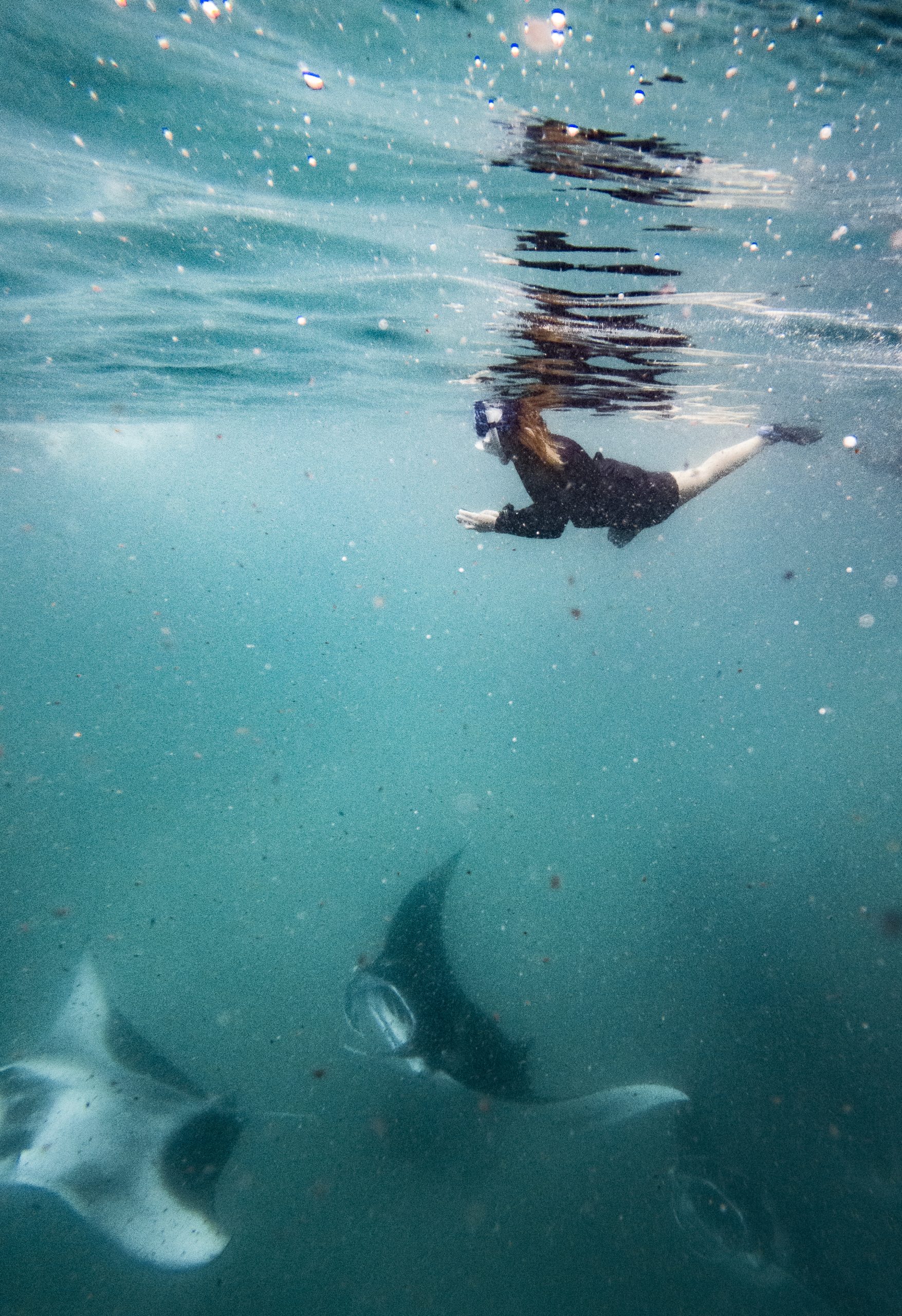

Read more An Interview Blogs here
Sign up for our Weekly free Job Alert here

